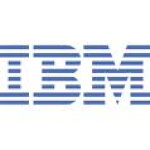- Industry: Computer
- Number of terms: 98482
- Number of blossaries: 0
- Company Profile:
Sometimes referred to as “Big Blue” IBM is a multinational corporation headquartered in Armonk, New York. It manufactures computer hardware and software and provides information technology and services.
A model of business functions that identifies roles and deliverables in an organization.
Industry:Software
A model terminal definition used by CICS during autoinstall of terminals. Definitions can be user-created or supplied by CICS, and are held in the autoinstall model table (AMT). The acronym AITM is sometimes loosely used to refer to the CICS routines that manage operations involving the autoinstall model table (AMT).
Industry:Software
A model that defines the language for expressing a metamodel. The relationship between a meta-metamodel and a metamodel is analogous to the relationship between a metamodel and a model.
Industry:Software
A model that describes how to represent IT entities as managed resources and services. See also Common Information Model.
Industry:Software
A model that describes how XML documents, and their extended metadata, are represented.
Industry:Software
A model-driven XML integration framework for defining, interchanging, manipulating, and integrating XML data and objects. XMI-based standards are in use for integrating tools, repositories, applications and data warehouses.
Industry:Software
A modeling and code-generation tool with which you create and edit collaboration templates to define their business processes and configurable properties.
Industry:Software
A modem feature that allows a nonswitched line to be used alternatively as a switched line or allows a switched line to be used as a nonswitched line depending on the characteristics of the modem.
Industry:Software
A module object (*MODULE) that results from compiling a CL source program using the Integrated Language Environment (ILE) CL compiler.
Industry:Software
A module that conforms to the Service Component Architecture (SCA) with well-defined interfaces. The module makes its function available to requesters by exporting its interface through an export. The module acts as a requester to a service provider by importing the provider's requirements through an import. It is possible to specify an export from another module as a target in an import. The modules are then packaged in a standard WebSphere Enterprise Archive (EAR) file. An EAR file contains all the files required to deploy the application.
Industry:Software
